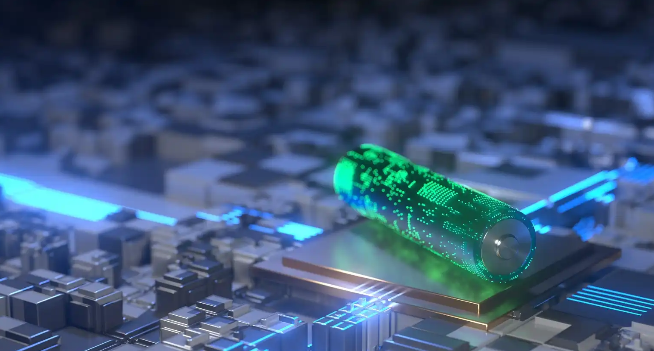How to Use Lithium Batteries in Military Equipment
Introduction
In recent years, the advancements in technology have revolutionized various sectors, including the military. One significant development is the application of lithium batteries in military equipment. Lithium batteries have become the preferred choice due to their high energy density, lightweight nature, and extended lifespan. This article aims to discuss the advancements of lithium batteries in military equipment, highlighting their benefits and potential challenges.
Լիթիումի մարտկոցների առավելությունները
1. High Energy Density: Lithium batteries possess a higher energy density compared to traditional batteries. This means they can store more energy in a smaller size, allowing military equipment to operate for longer durations without needing frequent battery replacements. The high energy density of lithium batteries is crucial for soldiers who rely on devices such as night vision goggles, communication systems, and GPS devices during missions.
2. Lightweight and Portable: The lightweight nature of lithium batteries is a significant advantage for military personnel. Carrying heavy equipment can be burdensome and may hinder mobility. Lithium batteries offer a lightweight alternative, reducing the load on soldiers while ensuring a reliable power source. This is particularly beneficial for soldiers engaged in long-range missions, where every ounce counts.
3. Extended Lifespan: Traditional batteries tend to degrade over time, leading to reduced performance. Lithium batteries, on the other hand, have a longer lifespan and can withstand numerous charge-discharge cycles. This characteristic is vital for military applications, as equipment often endures harsh conditions and prolonged use. The extended lifespan of lithium batteries ensures that soldiers can rely on their equipment without interruptions caused by battery failures.
4. Rapid Recharge: Lithium batteries have the advantage of being able to recharge quickly. This eliminates the need for soldiers to carry numerous spare batteries during missions. With rapid recharge capabilities, military personnel can recharge their batteries swiftly, ensuring a continuous power supply for their equipment. This saves valuable time and resources and allows soldiers to focus on their mission objectives.
Applications in Military Equipment
1. Portable Communication Systems: Reliable communication is critical for military operations. Lithium batteries power portable communication systems, including radios and satellite phones, ensuring soldiers can maintain constant contact with their units and receive vital information in real-time. The lightweight and long-lasting nature of lithium batteries make them ideal for these applications.
2. Soldier Wearable Technology: Modern military equipment includes wearable technology such as body cameras, helmet-mounted displays, and augmented reality devices. These devices require lightweight, high-capacity batteries to function effectively. Lithium batteries fulfill these requirements, allowing soldiers to operate with enhanced situational awareness and improved communication capabilities.
3. Unmanned Aerial Vehicles (UAVs): UAVs have become an integral part of military operations. These drones require a reliable and lightweight power source to carry out surveillance, reconnaissance, and combat missions. Lithium batteries provide the necessary power for UAVs while minimizing weight and allowing for extended flight durations.

Challenges and Future Developments
While lithium batteries offer numerous advantages, they also present some challenges for military applications. The main challenge is the risk of thermal runaway and potential fire hazards. Lithium batteries, if not properly managed, can overheat and catch fire. To mitigate these risks, robust safety protocols and advanced battery management systems must be implemented.
In the future, advancements in lithium battery technology will focus on improving energy density, increasing lifespan, and reducing environmental impacts. Research is underway to develop solid-state lithium batteries that eliminate the need for flammable electrolytes, further enhancing safety. Additionally, nanotechnology may be employed to increase the energy density of lithium batteries, allowing for even smaller and lighter military equipment.
Եզրակացություն
The advancements of lithium batteries in military equipment have significantly transformed the capabilities of soldiers on the battlefield. With their high energy density, lightweight nature, extended lifespan, and rapid recharge capabilities, lithium batteries have become indispensable for powering various military devices. As technology continues to evolve, further improvements in lithium battery technology will continue to enhance military operations, ensuring soldiers have reliable and efficient power sources for their equipment.
-
 In today's fast-developing technological era, lithium batteries, as a leader in the field of energy storage, are leading the wave of global energy transition and green development. In order to help you better understand lithium batteries, this article will thoroughly explore their working principle, application field, technological progress, and future development trends to provide you with strong support for your...Կարդալ ավելին
In today's fast-developing technological era, lithium batteries, as a leader in the field of energy storage, are leading the wave of global energy transition and green development. In order to help you better understand lithium batteries, this article will thoroughly explore their working principle, application field, technological progress, and future development trends to provide you with strong support for your...Կարդալ ավելին -
 The demand for lithium iron phosphate (LiFePO4) batteries has been on the rise in recent years due to the increasing use of renewable energy sources and electric vehicles. LiFePO4 batteries are considered safer, more durable, and environmentally friendly compared to traditional lead-acid batteries. However, the price of LiFePO4 batteries has been a concern for many consumers. The cost of...Կարդալ ավելին
The demand for lithium iron phosphate (LiFePO4) batteries has been on the rise in recent years due to the increasing use of renewable energy sources and electric vehicles. LiFePO4 batteries are considered safer, more durable, and environmentally friendly compared to traditional lead-acid batteries. However, the price of LiFePO4 batteries has been a concern for many consumers. The cost of...Կարդալ ավելին -
 Introduction Lithium-ion batteries have become an essential source of power for many electronic devices. The demand for high-performance batteries has been increasing in recent years, especially in applications where safety, long life, and high reliability are critical. LiFePO4 batteries are one such solution that offers several advantages over other battery technologies. In this article, we will discuss the features...Կարդալ ավելին
Introduction Lithium-ion batteries have become an essential source of power for many electronic devices. The demand for high-performance batteries has been increasing in recent years, especially in applications where safety, long life, and high reliability are critical. LiFePO4 batteries are one such solution that offers several advantages over other battery technologies. In this article, we will discuss the features...Կարդալ ավելին -
 In recent years, the demand for electric vehicles has seen a dramatic increase. As we move towards a greener environment, the need for more efficient and sustainable energy sources has become an important issue. Lithium Iron Phosphate (LiFePO4) battery packs have emerged as a promising alternative to traditional lead-acid batteries. LiFePO4 battery packs are rechargeable lithium-ion batteries that use...Կարդալ ավելին
In recent years, the demand for electric vehicles has seen a dramatic increase. As we move towards a greener environment, the need for more efficient and sustainable energy sources has become an important issue. Lithium Iron Phosphate (LiFePO4) battery packs have emerged as a promising alternative to traditional lead-acid batteries. LiFePO4 battery packs are rechargeable lithium-ion batteries that use...Կարդալ ավելին -
 Introduction With the increasing demand for renewable energy sources, the need for efficient and reliable energy storage technology has become crucial. Energy storage systems play a vital role in managing the intermittent nature of renewable energy sources such as solar and wind power. In recent years, lithium batteries have emerged as a promising solution for energy storage in power...Կարդալ ավելին
Introduction With the increasing demand for renewable energy sources, the need for efficient and reliable energy storage technology has become crucial. Energy storage systems play a vital role in managing the intermittent nature of renewable energy sources such as solar and wind power. In recent years, lithium batteries have emerged as a promising solution for energy storage in power...Կարդալ ավելին -
 In today's era of rapid technological development, instrumentation Lithium battery is gradually becoming the choice of the future with its excellent performance innovation and wide application prospects. As a representative of new energy technology, instrument lithium batteries not only have significant advantages such as high energy density, long life, and fast charging, but also play a vital role in medical...Կարդալ ավելին
In today's era of rapid technological development, instrumentation Lithium battery is gradually becoming the choice of the future with its excellent performance innovation and wide application prospects. As a representative of new energy technology, instrument lithium batteries not only have significant advantages such as high energy density, long life, and fast charging, but also play a vital role in medical...Կարդալ ավելին -
 In recent years, advancements in medical equipment have significantly improved patient care. One particular technological breakthrough that has revolutionized the healthcare industry is the development of lithium batteries. These batteries have not only enhanced the portability and functionality of medical devices but have also contributed to better patient outcomes and overall experience. Lithium batteries provide numerous advantages over traditional...Կարդալ ավելին
In recent years, advancements in medical equipment have significantly improved patient care. One particular technological breakthrough that has revolutionized the healthcare industry is the development of lithium batteries. These batteries have not only enhanced the portability and functionality of medical devices but have also contributed to better patient outcomes and overall experience. Lithium batteries provide numerous advantages over traditional...Կարդալ ավելին

